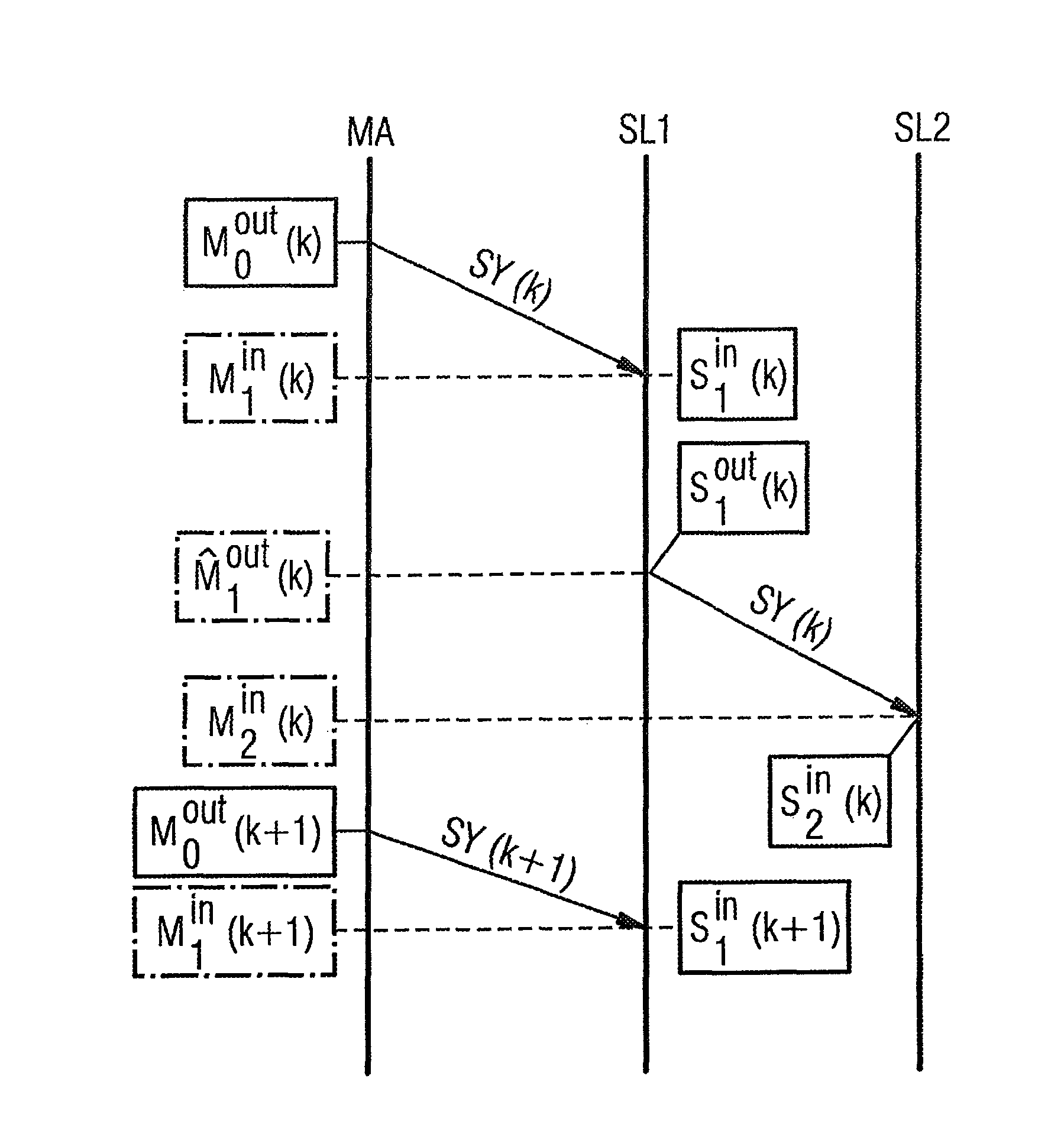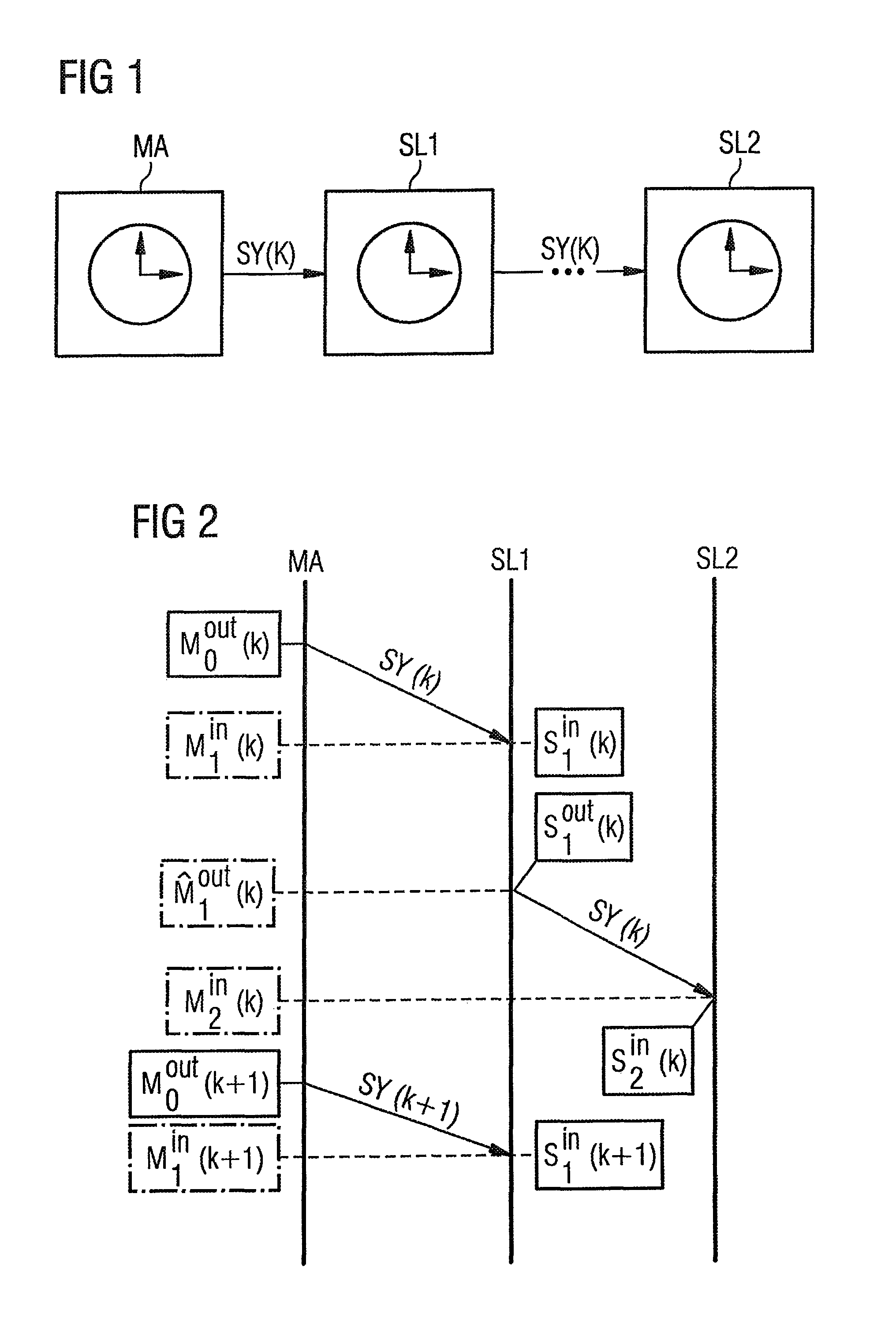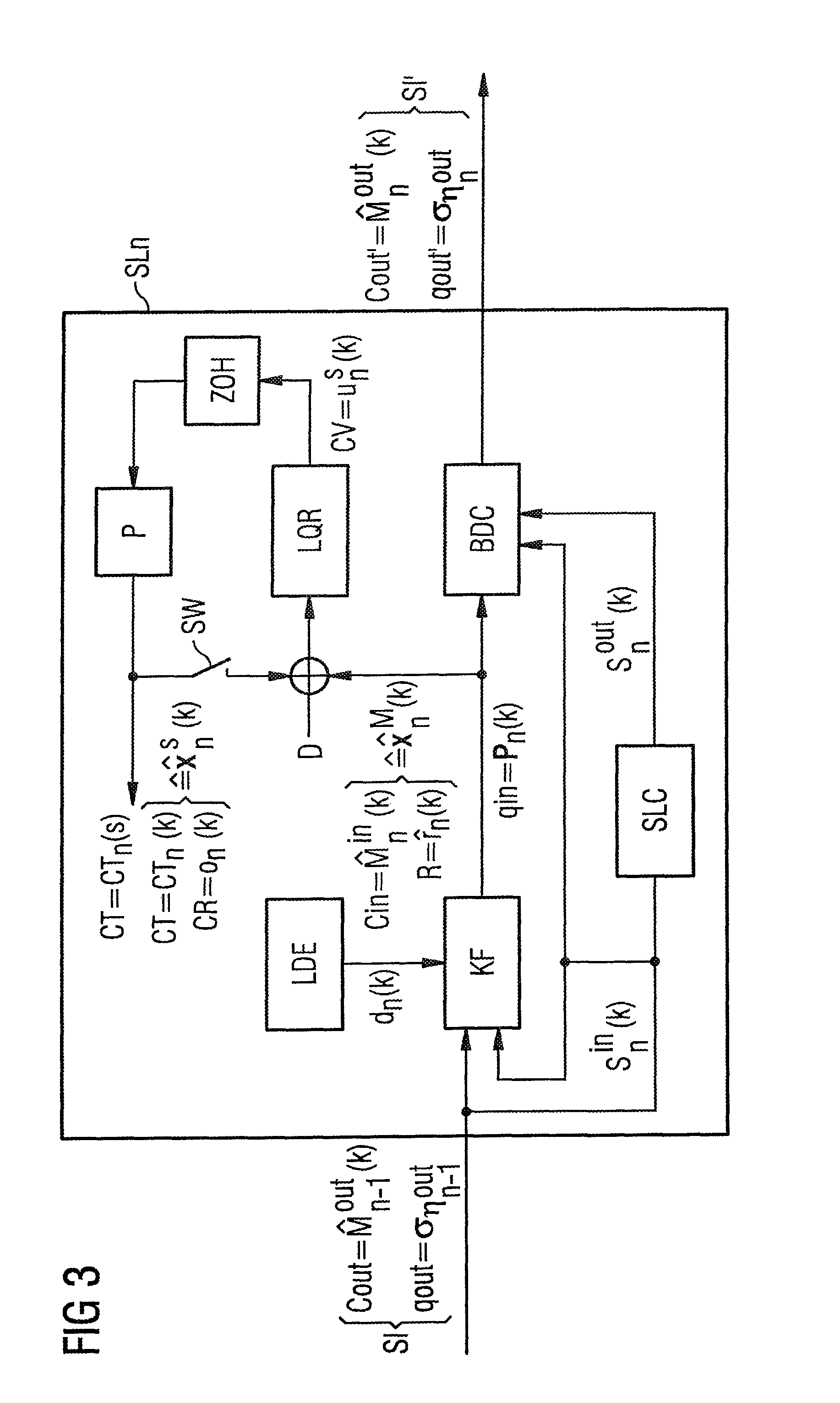Method for time synchronization in a communications network
a communication network and time synchronization technology, applied in the direction of synchronization signal speed/phase control, digital transmission, electrical equipment, etc., can solve the problems of insufficiently accurate time synchronization of slave nodes and flawed estimations, and achieve high precision and regularity of time synchronization in the communications network
- Summary
- Abstract
- Description
- Claims
- Application Information
AI Technical Summary
Benefits of technology
Problems solved by technology
Method used
Image
Examples
Embodiment Construction
[0038]FIG. 1 depicts a chain of nodes in a communications network in which an embodiment of the method in accordance with the invention is being executed. The communications network comprises a first node in the form of a master node MA as well as multiple second nodes in the form of slave nodes, two slave nodes, SL1 and SL2, being depicted in FIG. 1. The master node MA contains a reference clock that generates a reference clock frequency. By contrast, the individual slave nodes SL1, SL2, etc. contain separate internal clocks generating corresponding internal clock frequencies. In the communications network in accordance with FIG. 1, a suitable time synchronization protocol, e.g., the PTP (Precision Time Protocol) protocol in accordance with the IEEE 1588 standard, is used to synchronize the internal clock of each slave node with the reference clock of the master node MA. To this end, synchronization messages SY(k) are transmitted from one node to another. Specifically, a synchroniz...
PUM
 Login to View More
Login to View More Abstract
Description
Claims
Application Information
 Login to View More
Login to View More - R&D
- Intellectual Property
- Life Sciences
- Materials
- Tech Scout
- Unparalleled Data Quality
- Higher Quality Content
- 60% Fewer Hallucinations
Browse by: Latest US Patents, China's latest patents, Technical Efficacy Thesaurus, Application Domain, Technology Topic, Popular Technical Reports.
© 2025 PatSnap. All rights reserved.Legal|Privacy policy|Modern Slavery Act Transparency Statement|Sitemap|About US| Contact US: help@patsnap.com



